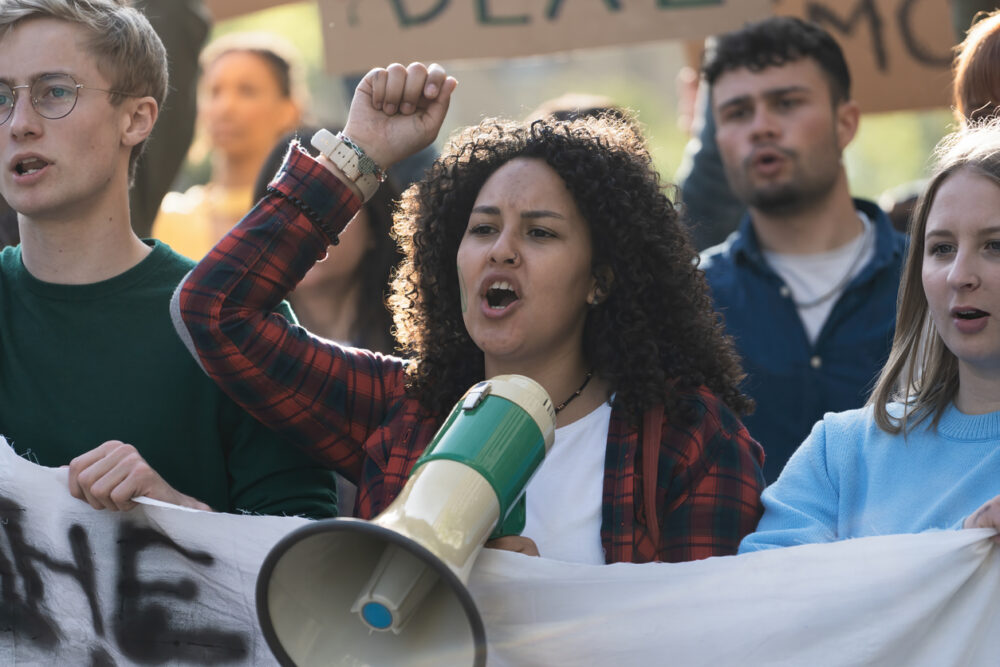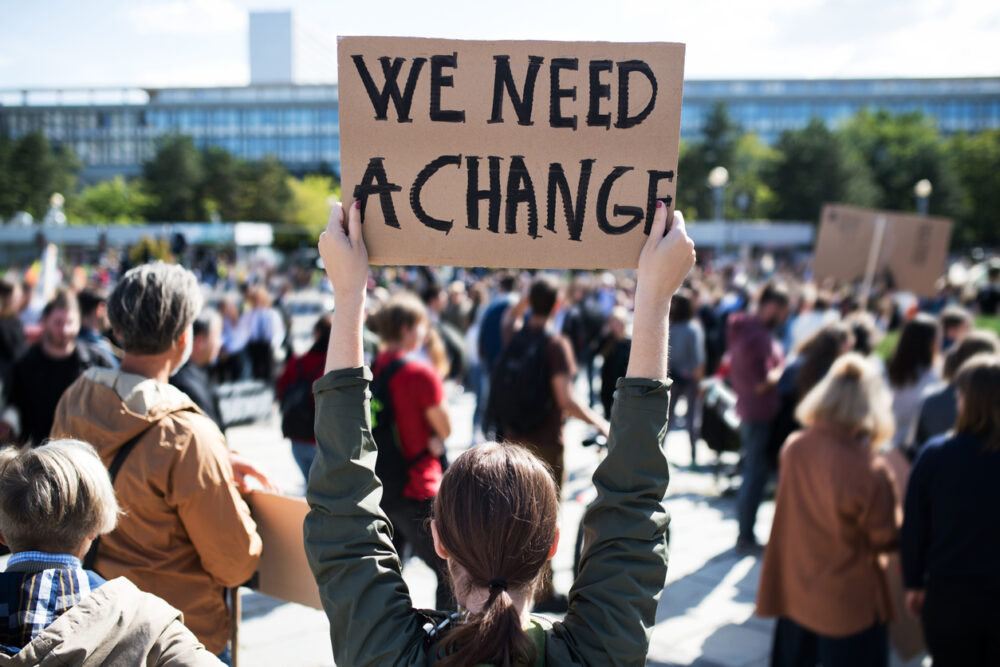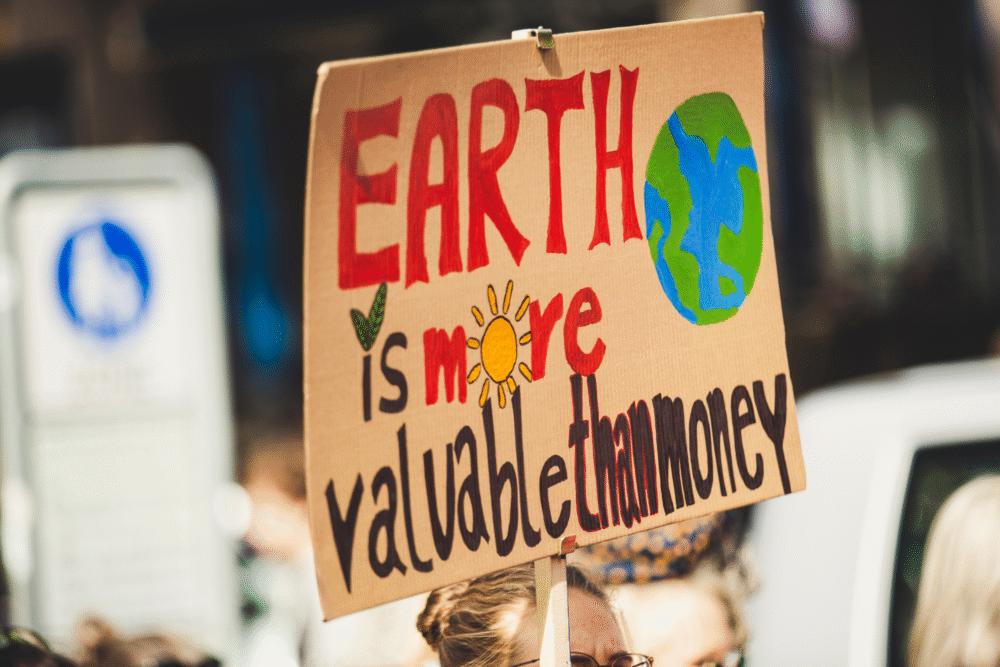Gen Z’s victories against financial giants.

Gen Z, often lauded for their digital savvy and fierce commitment to social justice, is increasingly turning their attention to the world of finance, holding major institutions accountable for their environmental impact. They’re not just protesting; they’re mobilizing online, calling out perceived “climate crimes” of big banks, and surprisingly, they’re winning.
These aren’t symbolic gestures; they are concrete examples of a generation using their collective voice to push for tangible change.
1. Pressuring banks to divest from fossil fuel projects.

One of the most prominent ways Gen Z has called out big banks is by demanding they cease financing fossil fuel projects. Through online petitions, social media campaigns, and direct action, they’ve highlighted how bank investments contribute to climate change. Their consistent pressure has forced several major banks to at least reduce, if not entirely eliminate, their funding for new coal, oil, and gas ventures.
These campaigns have made it increasingly difficult for banks to ignore their environmental footprint. Gen Z’s advocacy pushes for a re-evaluation of investment portfolios, encouraging a shift towards renewable energy and sustainable alternatives, creating a tangible impact on the fossil fuel industry’s financial lifelines.
2. Demanding transparency in climate-related financial disclosures.

Gen Z activists have relentlessly pushed for greater transparency from banks regarding their climate-related financial risks and the environmental impact of their lending portfolios. They’ve called for detailed disclosures on financed emissions and climate-transition plans, making it harder for banks to obscure their environmental responsibilities.
Their demands have pushed regulatory bodies and banks themselves to adopt more robust reporting standards. This increased transparency allows for greater public scrutiny and empowers investors and activists to hold institutions accountable for their contributions to climate change, forcing a reckoning with their carbon footprint.
3. Advocating for investments in renewable energy infrastructure.

Beyond divesting from harmful industries, Gen Z has actively campaigned for banks to significantly increase their investments in renewable energy and green infrastructure projects. They’ve highlighted the economic opportunities and environmental necessity of funding solar, wind, and other clean technologies.
Their advocacy encourages a proactive shift in capital allocation, moving money towards sustainable solutions that will define the future economy. This positive pressure creates a demand for innovative green financial products and signals to banks that they should be leaders, not laggards, in the clean energy transition.
4. Holding banks accountable for indigenous land rights and human rights.

Gen Z’s climate activism often intersects with social justice, extending their critiques to banks that finance projects infringing upon indigenous land rights or contributing to human rights abuses. They use social media to amplify the voices of affected communities and pressure banks to withdraw support from controversial pipelines or resource extraction projects.
These campaigns underscore a holistic approach to climate justice, recognizing that environmental harm often disproportionately impacts vulnerable populations. Their efforts force banks to consider the broader social and ethical implications of their investments, not just the financial returns.
5. Challenging banks’ lobbying efforts against climate regulations.

Many Gen Z groups scrutinize the lobbying activities of big banks, exposing instances where financial institutions fund organizations that actively work against climate regulations or promote fossil fuel interests. They call out this political influence, demanding that banks align their lobbying efforts with their public sustainability commitments.
This exposes a critical area where banks’ stated values may conflict with their political actions. Gen Z’s focus on lobbying holds financial institutions accountable for their role in shaping policy, pushing for greater integrity in their political engagements regarding climate change.
6. Organizing boycotts and customer pressure campaigns.

Gen Z has effectively organized consumer boycotts and pressure campaigns, urging individuals to move their money away from banks with poor climate records. These digital-first movements leverage the power of collective action, demonstrating that individual customers can collectively wield significant influence over financial institutions.
These campaigns directly impact banks’ bottom lines and reputations, forcing them to take consumer concerns about climate change seriously. It’s a powerful display of consumer activism, showing that financial choices can be a direct form of protest against corporate climate inaction.
7. Disrupting shareholder meetings and corporate events.

Gen Z activists have taken their protests directly to the heart of corporate power, organizing disruptions at bank shareholder meetings, annual conferences, and recruitment events. They use these high-visibility platforms to publicly challenge executives, raise awareness, and demand answers regarding their climate policies.
These direct actions ensure that their message cannot be ignored by top leadership and investors. They create uncomfortable but necessary moments of accountability, forcing banks to confront the urgency of climate action in public forums.
8. Pushing for climate education within financial institutions.

Recognizing the need for systemic change, Gen Z has also advocated for better climate education and literacy within financial institutions themselves. They’ve pushed for training programs for bankers and investors on climate risk assessment, green finance opportunities, and the broader implications of environmental degradation on the economy.
This aims to create a more informed and climate-conscious financial workforce from within. By pushing for internal education, Gen Z seeks to embed sustainable thinking at all levels of banking operations, leading to more environmentally responsible decision-making in the long run.
9. Collaborating with legal and policy experts for systemic change.

Beyond direct activism, some Gen Z groups are strategically collaborating with legal scholars, policy experts, and environmental organizations to develop more robust regulatory frameworks for green finance. They contribute to policy proposals, research, and legal challenges aimed at holding banks accountable through official channels.
This demonstrates a sophisticated understanding of how to effect systemic change, combining grassroots pressure with expert-driven policy advocacy. Their involvement helps to build a stronger legal and regulatory foundation for sustainable finance, creating lasting structural shifts in the banking sector.
